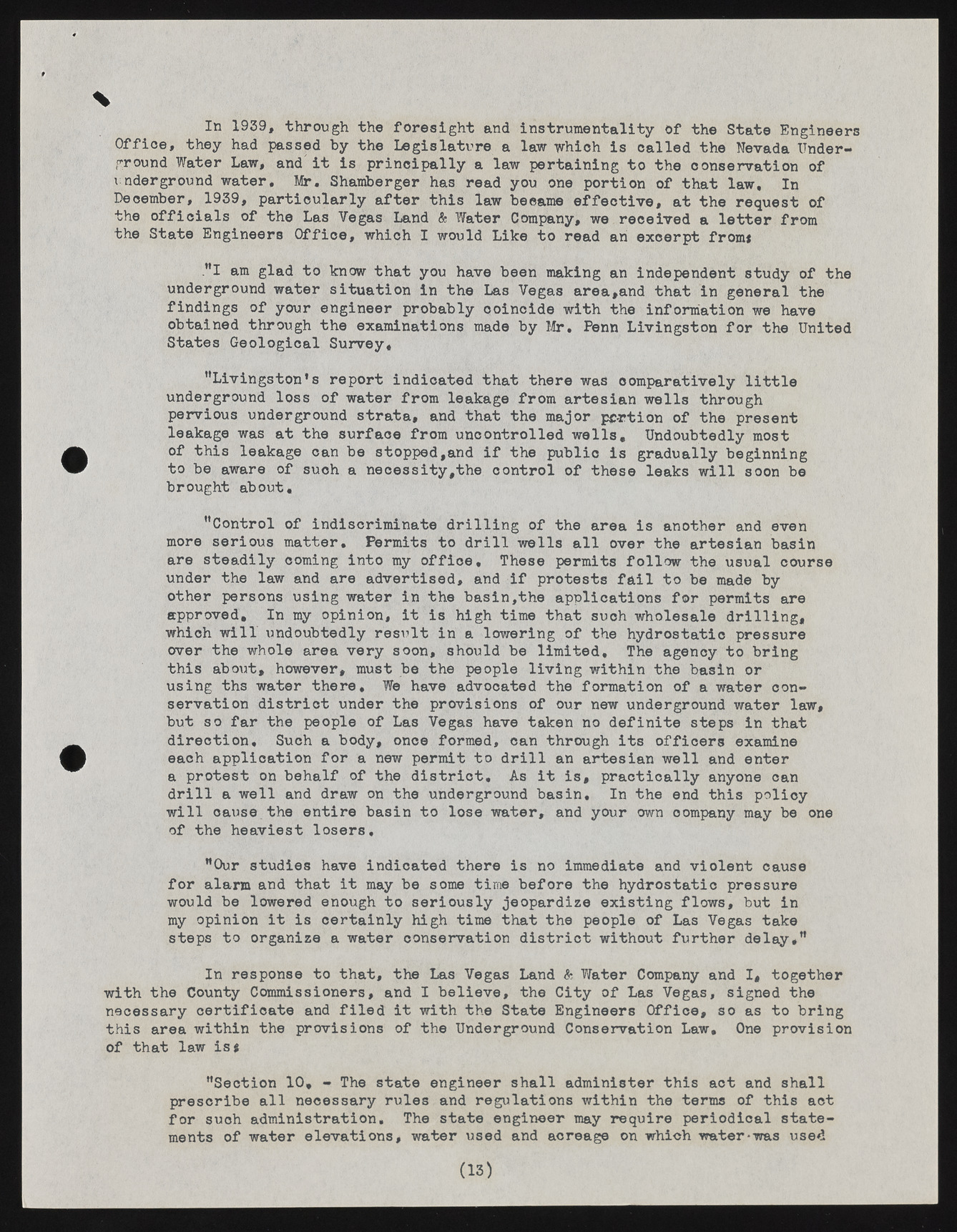Copyright & Fair-use Agreement
UNLV Special Collections provides copies of materials to facilitate private study, scholarship, or research. Material not in the public domain may be used according to fair use of copyrighted materials as defined by copyright law. Please cite us.
Please note that UNLV may not own the copyright to these materials and cannot provide permission to publish or distribute materials when UNLV is not the copyright holder. The user is solely responsible for determining the copyright status of materials and obtaining permission to use material from the copyright holder and for determining whether any permissions relating to any other rights are necessary for the intended use, and for obtaining all required permissions beyond that allowed by fair use.
Read more about our reproduction and use policy.
I agree.Information
Digital ID
Permalink
Details
More Info
Rights
Digital Provenance
Publisher
Transcription
In 1939, through the foresight and instrumentality of the State Engineers Office, they had passed by the legislature a law yrhioh is called the Nevada Underground Water Law, and it is principally a law pertaining to the conservation of underground water, Mr. Shamberger has read you one portion of that law. In December, 1939, particularly after this law became effective, at the request of the officials of the Las Vegas Land & Water Company, we received a letter from the State Engineers Office, which I would Like to read an excerpt fromi "I am glad to know that you have been making an independent study of the underground water situation in the Las Vegas area,and that in general the findings of your engineer probably ooincide with the information we have obtained through the examinations made by Mr. Penn Livingston for the United States Geological Survey, "Livingston's report indicated that there was comparatively little underground loss of water from leakage from artesian wells through pervious underground strata, and that the major portion of the present leakage was at the surface from uncontrolled wells. Undoubtedly most of this leakage can be stopped,and if the public is gradually beginning to be aware of suoh a necessity,the control of these leaks will soon be brought about, "Control of indiscriminate drilling of the area is another and even more serious matter. Permits to drill wells all over the artesian basin are steadily coming into my office. These permits follow the usual course under the law and are advertised, and if protests fail to be made by other persons using water in the basin,the applications for permits are approved. In my opinion, it is high time that suoh wholesale drilling, which will undoubtedly result in a lowering of the hydrostatic pressure over the whole area very soon, should be limited. The agency to bring this about, however, must be the people living within the basin or using ths water there. We have advocated the formation of a water conservation district under the provisions of our new underground water law, but so far the people of Las Vegas have taken no definite steps in that direction. Such a body, once formed, can through its officers examine each application for a new permit to drill an artesian well and enter a protest on behalf of the district. As it is, practically anyone can drill a well and draw on the underground basin. In the end this policy will cause the entire basin to lose water, and your own oompany may be one of the heaviest losers, "Our studies have indicated there is no immediate and violent cause for alarm and that it may be some time before the hydrostatic pressure would be lowered enough to seriously jeopardize existing flows, but in my opinion it is certainly high time that the people of Las Vegas take steps to organize a water conservation district without further delay," In response to that, the Las Vegas Land & Water Company and I, together with the County Commissioners, and I believe, the City of Las Vegas, signed the necessary certificate and filed it with the State Engineers Office, so as to bring this area within the provisions of the Underground Conservation Law. One provision of that law is* "Section 10, - The state engineer shall administer this act and shall prescribe all necessary rules and regulations within the terms of this act for suoh administration. The state engineer may require periodical statements of water elevations, water used and acreage on which water-was used % (13)

